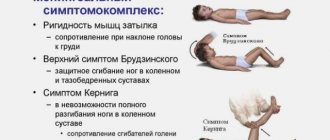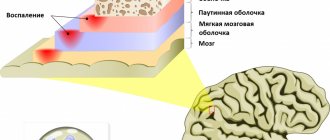A headache can not only distract you from your usual activities. She is capable of exhausting every day, turning life into gray everyday life. What if you have a headache every day? What reasons can cause it? How to behave correctly in such a situation?
Headache is a common problem. It can vary in intensity and can be caused by different reasons, both harmless and quite serious. In any case, this is the result of a violation of normal blood circulation in the brain.
Sufficient blood flow is the key to proper brain function; it maintains the viability of neurons, supplies them with oxygen, nutrients, and energy. Headache can be a symptom of oxygen deprivation. Sometimes it’s enough just to get a good night’s sleep or rest for the condition to return to normal.
Headaches every day can be caused, among other reasons, by strokes and tumors. In this case, regular pills will not relieve pain.
Headache can be acute or persistent. There are cases when it does not stop for weeks or even months.
Chronic cases
Let's figure out what causes headaches every day. If such a condition is observed constantly, from morning to evening, such cases are called chronic. Severe headaches every day can be triggered by lifestyle, environment, or work. Such pain is not a symptom of another disease, but an independent manifestation.
Chronic pain can last up to 180 days. In such cases, a doctor should help you find out why you have a headache every day. He will take a detailed history and prescribe tests, including an MRI.
Causes of headaches every day
Poor blood circulation in the brain can cause headaches every day. Reasons why blood flow is insufficient:
- frequent stressful situations;
- presence of diabetes mellitus;
- atherosclerosis;
- any injuries to the brain and skull;
- intoxication of the body with harmful substances;
- diseases of the spine, in particular the cervical spine.
The first manifestations may begin after prolonged sitting in one position. I have headaches every day—this is the problem office employees face. Attacks of dizziness begin to appear due to disruption of the blood vessels located in the cervical region. In such a situation, it is necessary to visit a neurologist and undergo a course of treatment.
Modern pharmaceuticals have developed drugs that can improve blood circulation and restore the functioning of brain tissue. After completing the course of treatment, positive dynamics are observed and the attacks of dizziness recede.
Typically, the course of treatment lasts about three months and already at the very beginning, headache attacks every day begin to subside and the intensity of pain in general decreases. The brain receives the necessary amount of oxygen and normalizes its work.
There are four main types of headaches:
- pronounced pain that spreads throughout the head and may be accompanied by dizziness;
- the appearance of headache attacks occurs due to an increase in fluid in the tissues of the brain; usually sitting or lying down, pain sensations decrease;
- tension headaches, a feeling of squeezing of the head occurs;
- headache due to vascular dysfunction, a feeling of pulsation in the temples or all areas of the head.
Vascular function may be impaired due to a decrease or increase in blood pressure. In the first case, the blood stagnates in the vessels and you may begin to feel dizzy. In the second case, the blood cannot move in the right direction and a feeling of pulsation appears.
If there is a deterioration in the outflow of blood through the veins, pain begins in the morning, by the evening the attack usually goes away, but this happens every day.
With cluster headaches every day, the main cause is considered to be the depressive state of a person in almost seventy percent of those suffering from them, and only in thirty percent is this cause cervical osteochondrosis.
With such attacks, there is dizziness, general weakness, and pain can be annoying even at night. If you have a headache every evening, the cause may be a lack of oxygen in the blood or overwork. Such attacks of headaches can be observed in pregnant women, whose body has restructured its work against the background of hormonal changes.
But in this case, it is not recommended to take pills, and headache attacks every day become unbearable. Pain may appear in the temples, forehead or back of the head, or may be felt throughout the entire head.
In such a situation, you can resort to treating headaches with folk remedies. But, given your pregnancy, consult your doctor before starting to use herbs or aromatherapy.
Head massage is very effective. If you can't take medications, learn how to massage yourself. To do this, you need to take a comfortable position and massage your entire head with your fingertips, you can start from the temporal region.
As an effect enhancer, you can use “Star” balm, menthol or mint oil, if you are not allergic to these components. If you have the opportunity to take a contrast shower or make a compress, such procedures will help you stop the attack.
It is generally accepted that if you apply a fresh cabbage leaf to your head during an attack, the pain will go away. Try it, this procedure definitely won’t hurt.
In medical practice, there are cases when medications do not help, tablets do not have the necessary effect. In the case of painkillers, everything may look quite simple - addiction has set in and the pain does not go away.
In this case, increasing the dose is not recommended because the effect, if it occurs, will not last long. Certain substances accumulate in the body and any serious disease can begin to develop.
In cases where painkillers do not help, it is possible to apply pressure to certain points of your body and achieve an analgesic effect.
Acupuncture is widely used in modern medicine and you can perform such procedures yourself. You can learn these techniques from a specialist or find video tutorials on the Internet.
Any non-medicinal method of relieving a headache attack can be considered harmless, and when several measures are used in combination, they bring a positive result and can relieve headaches quite quickly and for a long time.
Causes
If you have a headache almost every day, the main reasons are as follows:
- TBI;
- atherosclerosis;
- hypertension;
- intoxication;
- diabetes;
- osteochondrosis;
- hormone imbalance;
- oncology.
Headaches every day for various reasons are a reason to consult a doctor.
If you don’t find out the exact cause and just numb the pain with another pill, it will come back again.
Nape area
If the back of the head is bothering you, the reasons may be:
- Increased blood pressure. Hypertension is a very common cause. Sometimes it is enough to achieve a steady decrease in pressure to forget about the pain.
- Neuralgia of the occipital nerves. These peripheral nerves can cause persistent pain in the back of the head.
- Pathologies of the cervical spine. Daily headaches can be a symptom of osteochondrosis, compression, or pinched nerve. Also, such unpleasant sensations can appear after a long static load on the neck.
Whiskey
In the temple area, pain may appear after severe psycho-emotional stress. It may also indicate a migraine. The temples can hurt both at once, or separately on the left or right. Other reasons:
- mental stress;
- stress;
- changes in atmospheric pressure.
With migraines, severe headaches are often accompanied by nausea and vomiting. The pain may throb on the right or left side.
When faced with such a problem, many solve it very simply - buy a painkiller. There are a lot of such products sold in pharmacies. They are sold without a prescription, and numerous commercials constantly advise you to buy another miracle drug.
If painkillers do not help, there is reason to be wary and consult a doctor. By the way, uncontrolled use of medications can also cause pain. More often it appears in the temple area, and in medicine it is called abuse.
Forehead
Frontal headaches are very common. It often affects people whose activities involve constant mental work. It can also be triggered by sitting for a long time at a computer, desk, or even communicating with people for a long time. Often this problem is provoked by visual tension or high intraocular pressure.
Programmers, office workers, and managers often turn to neurologists.
Doctors emphasize that the cause of everyday headaches can be:
- toxic poisoning;
- neoplasms in the brain;
- infectious diseases;
- vascular diseases;
- mental pathologies.
Causes of headaches
A persistent headache must have a cause, which can be caused by:
- stressful situation;
- lack or excess of sleep;
- eye strain;
- hormonal imbalance;
- long-term use of medications;
- overweight;
- head injury;
- drinking alcohol;
- chronic fatigue.
Stressful situations
Although minor stress does not harm the body, being in a constant state of stress and tension leads to daily headaches and insomnia.
Lack or excess sleep
Healthy sleep restores the physical and psychological state of the body as a whole. With a lack of sleep or, conversely, with too much sleep, headaches may occur, which over time can become regular. For normal functioning and the absence of unpleasant consequences, a person needs to sleep 6-7 hours a day.
Eye strain
When working for a long time with papers or in front of a computer monitor, with incorrectly selected glasses or not too bright lighting in the room, overstrain of the eye muscles occurs, which can provoke severe pain in the head.
Hormonal disbalance
Changes in hormone levels can cause headaches every day. Such changes in hormonal levels most often occur in women during the menstrual and premenstrual periods, during menopause or menopause, as well as pregnancy.
Taking medications
Long-term use of medications can also cause daily headaches, such as when taking painkillers. This may also be a signal that some medicine prescribed by the doctor is not suitable for you, and daily headaches are just a side effect that you can get rid of by replacing the drug with an analogue.
Overweight
If you have a headache every day if you are overweight, this is a sign from your body of a possible illness.
Head injury
Head pain from a traumatic brain injury can last 2-8 weeks. If the attacks do not stop even after, you should consult a doctor due to chronic post-traumatic headache.
Alcohol consumption
A certain dose of alcoholic drink or poor tolerance to alcohol can lead to discomfort.
What to do
How should one proceed in such cases? It is important to understand that headaches and the reasons that cause them can be different. In most cases, especially if painkillers do not help, it would not be superfluous to consult a neurologist. Often it is he who is able to make an accurate diagnosis and identify a specific cause. This is the main condition for successful and quick treatment.
Let's consider the main diseases and pathological conditions that can accompany headaches.
Hypertension
A fifth of the population has high blood pressure. Hypertension is fraught with vascular atrophy and ischemic stroke, therefore such patients must measure blood pressure every day and, if necessary, reduce it with special medications. They are selected by the doctor individually in each case.
Headache appears if blood pressure exceeds normal pressure levels by 25%. When the pressure stabilizes, it goes away, but in rare cases it can remain for the whole day. In this case, it is worth excluding pathology of the adrenal glands (pheochromocytoma). In this case, the headache will be bilateral, bursting, it often appears in the morning and is localized in the back of the head. Such attacks are quite short (up to 15 minutes).
If you experience frequent headaches that are accompanied by sweating, nausea, tremors, and facial skin flushing, it is worth checking the state of the endocrine system.
In hypertensive patients, pain may occur when sitting for a long time. It is contraindicated for them to stay at the computer for a long time, as the pressure can jump sharply. In this case, not only the hemispheres of the brain suffer, but also the retina of the eyes, the heart, and chondrosis develops over time.
With osteochondrosis of the cervical spine, the condition worsens further because the destruction of brain cells begins. This leads to rapid fatigue, decreased concentration, sleep disturbances, and dizziness. In such cases, in addition to medication treatment, it is recommended to rest more and develop a daily routine.
Well, if high blood pressure is accompanied by fever, cough, chills, or sore throat, this may be a symptom of the flu, ARVI.
Diabetes
With this disease, blood vessels are affected, which disrupts blood circulation and affects all organs and systems of the body. Diabetics may experience headaches as sharp blows, persistent and long-lasting.
If a diabetic has increased blood pressure, he should take the medicine prescribed by the endocrinologist.
Atherosclerosis
With atherosclerosis, cholesterol is deposited on the walls of all arteries. In this case, blood circulation in the vessels of the brain is disrupted, and pathological changes become chronic. The lumens of the arteries quickly narrow, which causes oxygen starvation of the brain. In this case, hypertension may also appear, which will be constantly accompanied by attacks of headache.
Other signs of atherosclerosis: insomnia, memory impairment, irritability, decreased performance. The pain is localized in a separate area and is observed more often in the morning or evening. It may be accompanied by a feeling of a heavy head.
With this pathogenesis, qualified medical assistance is required. Only he will be able to select an effective systemic treatment. It can be supplemented with feasible physical activity, walking outside more often, and resting more.
Hormonal imbalance
Women suffer from it more often (menopause, pregnancy, PMS, hormonal fluctuations in adolescents). Their hormone levels are very unstable and can change. With hormonal disorders, the legs and face may swell, periods become painful, the woman loses or gains weight, she feels nauseous, acne appears, stretch marks on the chest, abdomen, and constipation. With such symptoms, a thorough comprehensive examination is required.
The headache is especially severe during the so-called menopause, when the production of sex hormones gradually stops. If a woman during menopause ignores such symptoms, she may face serious problems, including cancer.
TBI
Traumatic brain injury can cause frequent headaches in the future. Even with a mild TBI, it is still worth seeing a doctor, because it can mark the beginning of regular discomfort.
TBI can be of different types:
- injury;
- concussion;
- compression of the brain.
When a bruise occurs, the tissues swell and a hematoma appears. After one hour or several hours, the pain goes away and no longer bothers you. When a concussion occurs, the pain may persist for several days; when moving, it becomes stronger, dizziness, nausea, weakness, and ringing in the ears may appear. With a severe concussion, the limbs can be paralyzed and speech is impaired.
If a person loses consciousness, this may indicate compression of the brain caused by bleeding from a TBI.
Fatigue
Oddly enough, fatigue can also lead to persistent headaches. A therapist can help in this situation. Most likely, the cause was stress, overwork, and inability to alternate work and rest. It is enough to stop overworking, giving in to stress, and being nervous for your condition to improve.
If no pathologies are identified, simple rules can help return the body to tone:
- While working, take regular deep breaths (several). This is a great way to oxygenate your blood.
- Try to keep your back straight, this will relieve the shoulder area.
- Learn to relax in the evenings, forgetting about problems at work.
- Watch less TV, and rather take a walk in the fresh air.
- To sleep better, take a bath, then you are guaranteed a restful night and deep sleep.
Stress
A person cannot avoid stress at all. One way or another, he is constantly lying in wait for us. A little stress, oddly enough, is even beneficial for the body. They keep our neural connections in good shape, force us to think about every situation and try to avoid annoying mistakes. But constant stressful situations are dangerous for the body. They provoke excessive production of adrenaline, exhaust all energy, lead to disruption of sleep, cardiovascular activity, etc.
Overexertion of stress can cause persistent headaches. It may be preceded by muscle tension, breathing problems, etc. Psychologists advise avoiding unpleasant conversations that can lead to such a negative reaction. This doesn’t always work out, because stress happens not only at work, but also in the family. Here it is important to understand for yourself what is more important: to prove that you are right or to preserve your health and the well-being of those close to you.
It is stress in the family that is considered the most difficult. They can lead to completely unexpected negative consequences. After talking in a raised voice with loved ones, a person can get a stroke or heart attack, so a headache is not the worst option. Psychologists advise avoiding a showdown, leaving the room for a while, being distracted by something pleasant, or just drinking a cup of water. This will dilute the cocktail of hormones and adrenaline in your blood and reduce the degree of tension.
Eye strain
This problem is often faced by people with mental work or those who are forced to constantly work at the computer. But even incorrectly selected glasses or watching 3D movies can cause such pain. The thing is that excessive eye strain affects the eye muscles, leading to painful sensations.
Sleep disorders
Lack of sleep is extremely harmful to the body. Good sleep helps restore strength and relieve mental stress. You should not work or do household chores until late at night. Try to stick to a reasonable routine. Sleep should take at least six hours, and preferably eight.
Long-term use of certain medications
We have already mentioned that frequent use of painkillers can lead to the opposite effect - they will provoke headache attacks. Such attacks can last up to two weeks, and after the patient takes the next portion of the analgesic, it intensifies.
For the unpleasant sensations to go away, it is enough to simply stop taking the analgesic with which the body is fed up. Sometimes doctors may also prescribe a course of antidepressants.
Obesity
Excessive weight can cause a whole range of diseases. One of the symptoms of an onset of illness may be a headache.
Main types of pain
- Stress, pressure changes, active mental work and overexertion most often lead to regular pain in the temples. This is also caused by advanced migraines and long-term use of medications, to which the body can develop an addiction.
- If you have a headache in the back of your head every day, this may be a sign of high blood pressure, a disease of the cervical spine (for example, osteochondrosis) or severe stress on this area, as well as a sign of a neurological disease.
- In the frontal part of the head, pain can occur due to written work or long periods of time at the computer, while in a noisy or crowded place, or due to visual strain. Pain in the frontal region can also be a signal of a number of diseases, such as: neoplasms or vascular diseases of the brain,
- illness associated with a mental state,
- chronic intoxication (infectious or toxic) and others.
- The reason why pain can occur in the morning and even last all day is lack of sleep or, conversely, too much sleep. In the latter case (and with daytime sleep every day), pain occurs due to an increase in the influx of a special fluid - cerebrospinal fluid, which washes the brain.
- If nausea or dizziness is added to your problem, in the first case this may be due to high or low blood pressure, obesity or intoxication of the body. In the second case, dizziness and fainting are added with severe injuries, with cerebral edema or with a severe migraine attack.
- Weakness in the form of tingling or numbness in the fingers and toes, as well as a feeling of heaviness in the back of the head, may be a sign of a serious illness, such as:
- meningitis,
- infection of the tissues of the brain or spinal cord,
- arthritis, etc.
- Temperature is usually added during colds and infectious diseases, meningitis and during the menstrual cycle.
- Throbbing pain is associated with:
- vegetative-vascular diseases,
- tumors,
- with mastocytosis,
- drinking alcohol or due to stressful situations.
- Pressive pain is a more common type of pain, usually due to overexertion or working too long, but can also be a symptom of brain abscess, encephalitis and other diseases.
The most dangerous diseases
Among the most dangerous diseases that are accompanied by pain in the head are meningitis, glaucoma, and cancer.
Meningitis
With meningitis, the membranes of the spinal cord and brain become inflamed. If not treated immediately, death may occur. Brain swelling begins, intracranial pressure increases, and pain receptors are intensely irritated.
A sure symptom of meningitis is a bursting and very severe headache, the location of which is difficult to determine. It is accompanied by high skin sensitivity, nausea, and vomiting. Even patients who are in a coma may feel severe pain when the doctor touches their scalp.
Glaucoma
With glaucoma, the optic nerve is affected, not only pain in the head appears, but also general weakness and nausea. It is important to consult a doctor at the first symptoms, because glaucoma leads to irreversible blindness.
Cancer
When you have brain cancer, headaches are a must. It is observed at night or in the morning, since the neoplasm is capable of releasing many toxins that disrupt normal blood circulation. When blood stagnates, cerebral edema begins. Another symptom is sudden vomiting, often not preceded by nausea.
If medical care is not provided, the condition of such patients worsens. Hallucinations, confusion, inappropriate behavior may appear, and the headache intensifies.
Reasons for the development of the pathological condition
If you have a persistent headache and medications provide only temporary relief, you should consult a doctor whenever possible. It will help determine the factors that triggered the headache. There are the following reasons for the development of pain syndrome:
- Improper functioning of blood vessels, which disrupts brain activity.
- Nervous or emotional tension, constant stress.
- Traumatic brain injury.
- Diabetes.
- Arterial hypertension.
Elena Razumovna Lebedeva, a neurologist, Doctor of Medical Sciences, Russia’s representative at the World Health Organization to create a new classification of headaches, talks in great detail about the reasons:
- Intracranial pressure is too high.
- Osteochondrosis in the cervical region.
- Problems with the functioning of the endocrine system.
- A brain tumor, both malignant and benign.
Learn about the symptoms of glioblastoma, one of the most dangerous tumors.
- Diseases of the cardiovascular system, in which the outflow of venous blood becomes difficult.
- Migraine.
People's secrets
Do not overuse painkillers. They will initially relieve discomfort, but over time they can lead to the opposite effect. The body will become fed up with the drug.
To start, you can apply a regular cold compress or a simple cabbage leaf to your head. Such folk remedies can help in some cases. Aromatherapy can also have a positive effect. To relieve headaches, use aromatic oils of chamomile, lavender, rose, marjoram, and lemon. You need to take a drop of oil on your fingertips and gently massage your temples for several minutes.
If you have regular attacks, you should definitely visit a doctor. Unfortunately, it often happens that a patient suffers from headaches for months, regularly takes painkillers, and at this time a dangerous disease develops inside the body.
The worst case is if the patient ignores the manifestations of a malignant tumor. It is capable of growing very quickly, creating many metastases throughout the body. At the same time, modern medicine can quite successfully combat the manifestations of cancer and prolong the patient’s life for 2-5 years, achieving stable remission.
Diagnostics
In addition to collecting anamnesis and examining the patient, the following measures may be prescribed to make a diagnosis:
- MRI of the brain;
- EEG;
- lipid profile;
- Doppler ultrasound of the vessels of the neck and head;
- blood composition analysis.
Additional consultation with a specialist (psychiatrist, neurosurgeon, ophthalmologist, etc.) may be required.
In some cases, for example, when a tumor develops, it is very important not to waste time. Therefore, you should not put off going to the doctor if you notice that your head is constantly bothering you. Don't be tempted to just take another pill - maybe it will help. Such frivolity can cost you dearly!
Half of all cases of persistent headache are easily relieved. It is enough to adjust your daily routine, nutrition, monitor your blood pressure, avoid stress, and exercise. If a person is weather-sensitive, on difficult days you need to rest more, avoid overwork, complex brain activity, and stressful situations. Men should avoid physical activity. These tips help not only adults, but also children. If the pain does not go away, it is necessary to treat not it separately, but the cause that caused such a symptom.
Signs of a headache
There are cases of deterioration in general condition, disruption of the musculoskeletal system, speech, vision and even memory. Such signs indicate that it is necessary to seek the help of a specialist and undergo a full medical examination. Usually you need to do an ultrasound, MRI, ECG, urine and blood tests.
Before headache attacks become chronic, the following signs may be noticed.
- tension headache appears;
- migraine attacks will begin to appear very often;
- Cluster headaches will begin to worsen;
- paroxysmal hemicrania will become chronic;
- headaches will appear against a background of depression and unexplained anxiety.
There are several reasons for such manifestations:
- an infection that has entered your body;
- the beginning or end of a drug course of treatment;
- any intracranial formations;
- disruption of vascular function;
- injuries received;
- any pathological changes in the organs of the face or head;
- disturbance of metabolic processes in the body.
Scientists say that the few (less than fifty percent) who suffer from tension headaches experience attacks no more than six times a week. Migraine attacks affect almost fifteen percent of people.
Cluster pain occurs in one percent of the population and is usually seen by a specialist. With migraine attacks, half of the patients try to get specialist advice, and all other categories self-medicate and haphazardly take medications to relieve the attack.
It is possible to determine the nature of headache attacks:
- with tension pain, there is a feeling of squeezing of the head, the pain is not very strong;
- during migraine attacks, there is a feeling of pulsation, increased sweating, nausea, increased heart rate, dizziness and sparkling stars;
- with high blood pressure, pain is felt in the back of the head, the pain is not acute, pulsation is felt;
- During a stroke, the pain comes sharply, very painfully, convulsions and vomiting may occur.







